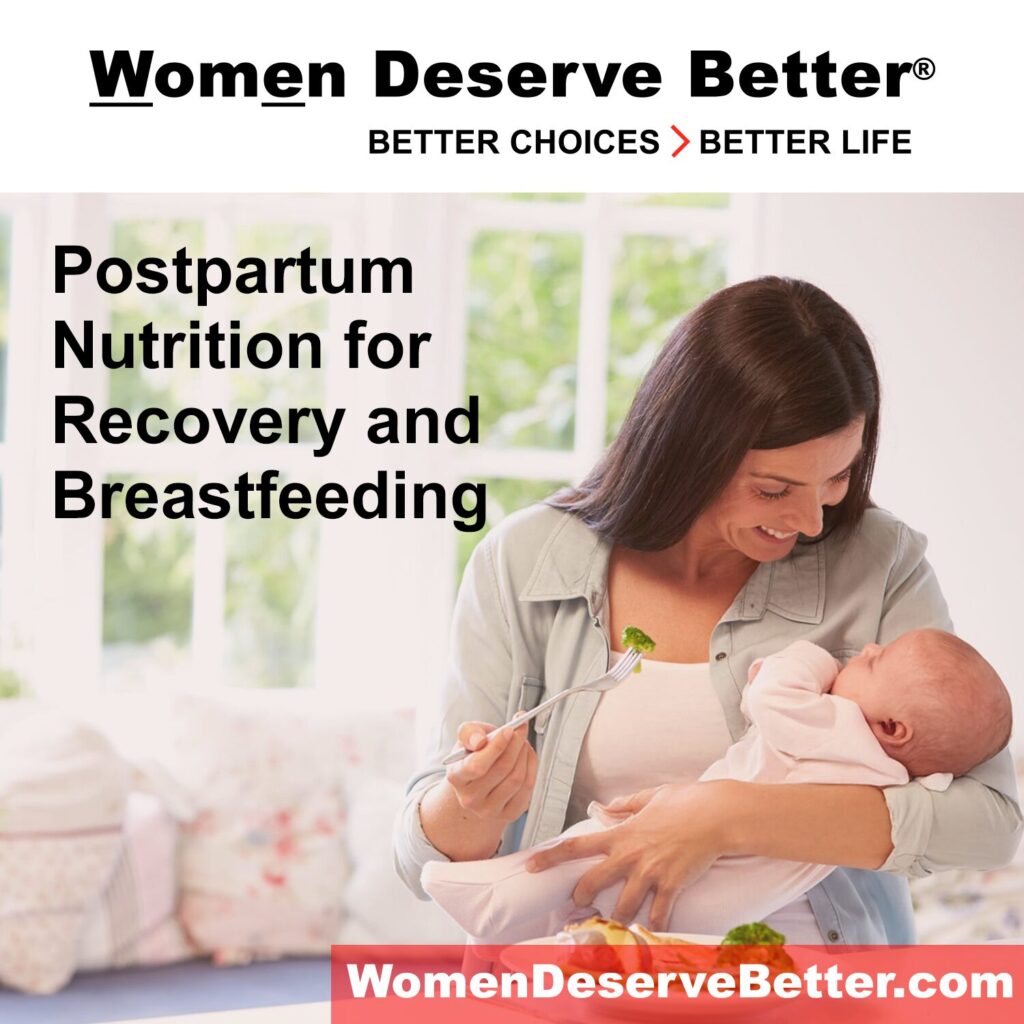
After giving birth, your body goes through a major transformation. Whether you had a vaginal delivery or a C-section, your body needs time—and the right fuel—to heal. If you’re also breastfeeding, your nutritional needs increase even more. Eating the right foods during the postpartum period helps you recover faster, fight fatigue, and produce enough milk to nourish your baby.
Why Nutrition Matters After Birth
In the first weeks after delivery, your body works hard to repair tissues, manage hormone changes, and adjust to the demands of caring for a newborn. Eating nutrient-rich meals can speed healing, support mental health, and help restore your strength. New moms often skip meals or grab whatever’s easiest, but this can make fatigue and mood swings worse.
If you are breastfeeding, your body uses extra calories and nutrients to produce milk. According to the Centers for Disease Control and Prevention (CDC), breastfeeding mothers need about 450 to 500 extra calories per day to maintain energy and support milk supply. These calories should come from healthy foods like fruits, vegetables, whole grains, protein, and healthy fats—not just snacks or processed foods.
Key Nutrients for Recovery and Milk Production
Focus on getting a balanced diet that includes:
- Protein – Helps repair muscles and tissues after childbirth. Good sources include eggs, meat, beans, tofu, and Greek yogurt. Aim for a source of protein in every meal and snack!
- Iron – Prevents fatigue and helps restore blood lost during delivery. Try eating leafy greens, beef, or iron-fortified cereals. Pair iron-rich foods with vitamin C (like oranges or tomatoes) to help your body absorb the iron. At your 6 week postpartum checkup, you can also ask to get your iron levels checked if you had anemia during pregnancy.
- Calcium – Needed for your bones and your baby’s development. Found in dairy, leafy greens, and fortified plant milks.
- Healthy fats– Supports brain function and hormone balance. Avocados, nuts, seeds, and olive oil are great choices.
- Fiber – Eases constipation, which is common after childbirth. Whole grains, beans, fruits, and veggies are good sources. Fiber supplements and stool softeners may be encouraged following birth as well.
Hydration is just as important. Breastfeeding moms especially need to drink water often.
Dehydration can make you feel sluggish and may reduce milk supply. A good rule is to drink a glass of water every time you breastfeed, plus throughout the day.
Nutrition Supports Your Baby Too
When you’re breastfeeding, what you eat affects your milk. According to the American Academy of Pediatrics, breast milk provides nearly 100% of a baby’s nutrition for the first 6 months of life. That means your own nutrition supports not just your body, but your baby’s growth, immunity, and development.
Mothers who choose formula also benefit from a nutritious diet after birth, as every body needs the right fuel to recover.
Practical Tips for Busy Moms
Postpartum life is busy and unpredictable, so eating well doesn’t have to be complicated. Try these ideas:
- Keep healthy snacks nearby—like trail mix, fruit, hard-boiled eggs, or whole-grain crackers. And always keep some protein bars in your diaper bag. You never know when postpartum hunger will strike!
- Meal prep or freeze meals before baby arrives, or ask friends and family to help with meals. Stews and casseroles with added veggies can be doubled, with half frozen for the future.
- Use smoothies as an easy way to get fruits, veggies, protein, and healthy fats all in one. I personally mix 1 cup of frozen fruit with half a cup of juice, half a cup of Greek yogurt, half a banana, a large handful of spinach, and protein powder to make a great smoothie to sip on throughout the morning.
- Continue to take your prenatal vitamin unless your doctor advises otherwise—it still supports your recovery and breastfeeding. Some doctors also advise you to supplement with fish oil.
